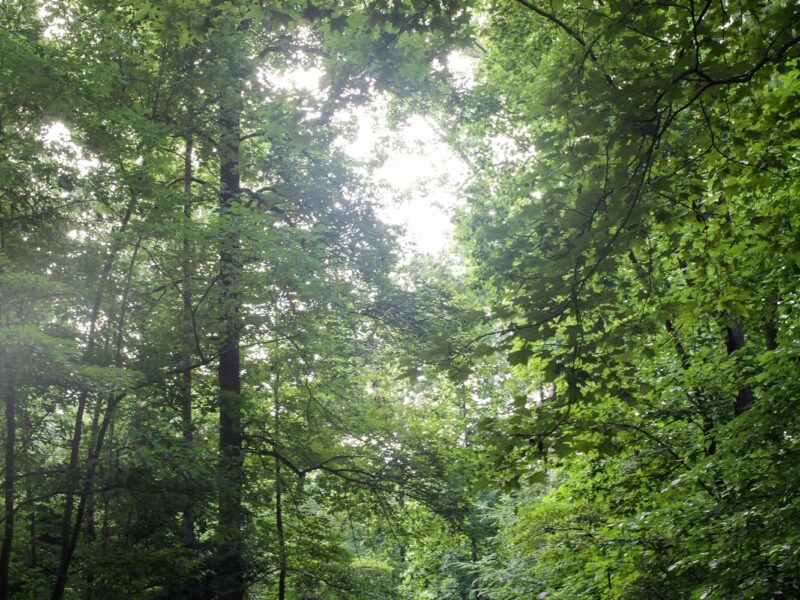404-633-4505 | Join Us On Sundays at 11AM!
404-633-4505 | Join Us On Sundays at 11AM!

Central Congregational United Church of Christ sits sets in 8 forested acres on Clairmont Road. Central has been a liberal, progressive Christian church in Atlanta since 1882. It supports the community through 25 outreach ministries, and is home to Congregation Bet Haverim, a Reconstructionist Jewish community and to Open Community UCC, a Korean speaking Christian community.
A creek runs parallel to Clairmont at the front of the property. American beech, oak and hickory trees, some estimated to be 150 years old, form a canopy. The driveway runs up the hill through the woods to the church building at the back of the property. English ivy has grown over all the woods and into gardens adjacent to the church. The creek is filled with debris. Scattered surviving ferns and wildflowers (Christmas and lady ferns, mayapple, trilliums, jack‐in‐the‐ pulpit, etc.) suggest the rich and diverse native plant culture that once flourished here. The property has been certified as a wildlife habitat by the National Wildlife Federation based on criteria including the provision of food, water, shelter, and nesting places.
A creek runs parallel to Clairmont at the front of the property. American beech, oak and hickory trees, some over 100 years old, form a canopy. The driveway runs up the hill through the woods to the church building at the back of the property. English ivy has grown over all the woods and into gardens adjacent to the church. The creek is filled with debris. Scattered surviving ferns and wildflowers suggest the rich and diverse native plant culture that once flourished here. The property has been certified as a wildlife habitat by the National Wildlife Federation. Volunteers have built trails and are removing invasive plants and restoring native plant communities. Children with the resident preschool visit the trails and creek daily.
The Gardening Team has a mandate to create a sustainable wildlife habitat. The objective is to re-establish a healthy and self-sustaining native ecosystem appropriate for the location. Habitat restoration will involve removal of pest plants and reintroduction of native plants that once populated the property. The ecological benefits are the preservation of native species, the improvement of air and water quality, and the sustainability of biological communities.
The habitat restoration will offer an inner city arena for educating the public about nature and the importance of healthy ecosystems. Local youth volunteers will be trained as interns at the site, to check plant health and monitor wildlife use of the developing plant community. On volunteer work days students and community members will establish additional native plants, weed and mulch the site, and learn about the benefits of restoring a natural habitat in an area surrounded by urbanization.
The forest will include walkways and benches where members of the Greater Atlanta community may walk the paths and trails of Central Forest, relax and commune with nature while enjoying the beauty and wonder of a wildlife habitat from a bygone era.
Sign up to receive our newsletter!